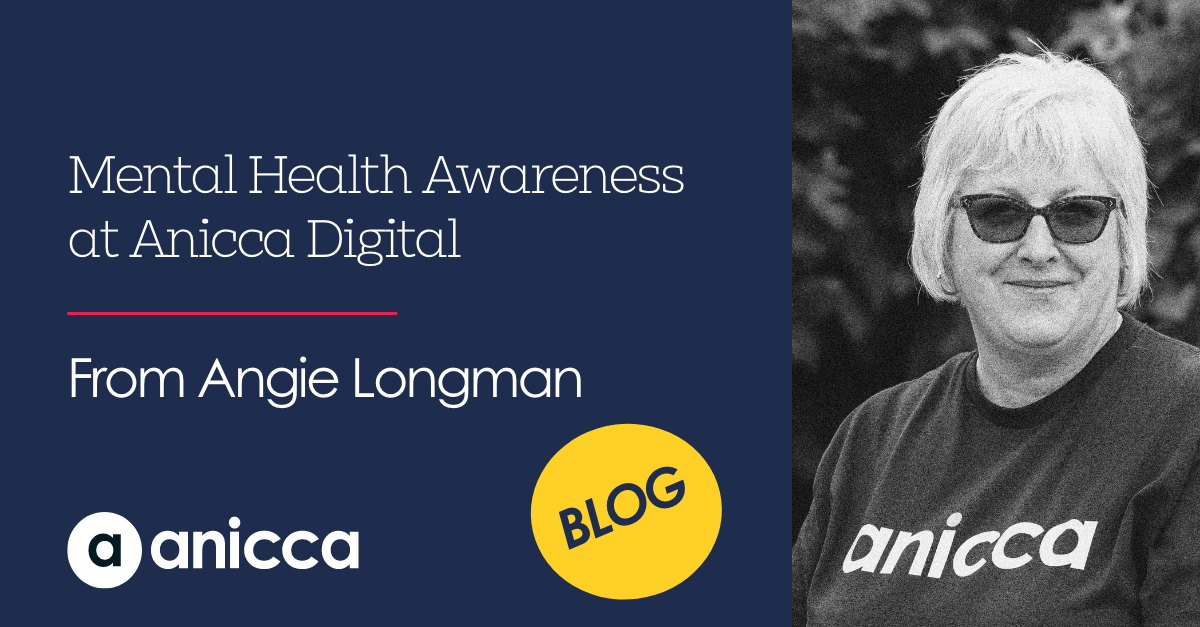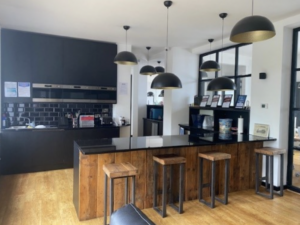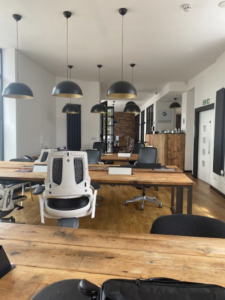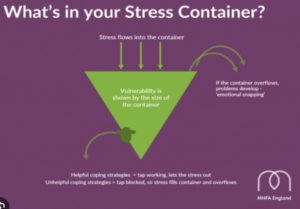

As it is Mental Health awareness week, I wanted to share things we do here at Anicca Digital Ltd. We are so very conscious as an employer that as people work more flexibly either from home or co-working spaces, we have lost some of our daily work structure. Pre Covid we worked almost always in the office. Asking a question, ideation meetings were quick and easy. Finishing between 5 & 6 pm and locking the laptop away was a ritual. We entered 2020, and in March of that year, we were forced to look at our working habits and find a whole new working practice.
I feel the digital marketing industry allows our teams to work from home. The daily commute is a thing of the past, however, having my office in my home also brings its frustrations. Firstly, I sit alone at a desk that is now part of my home. Secondly, I cannot just ‘chat’ with my colleague as we’re not sitting side by side. Finally, trying to have a quick chat with someone almost seems impossible. Not to mention, do we ever really switch off when working from home?

Today, I am sitting in our office in Leicester. The building is fabulous, it’s a converted Pub. I am so very proud to work in this environment, we offer so much to our team, but as we are remote first, it is not used all of the time by all of the team, but when I am here, I look around, what a fabulous building and facilities we have.

Mental ill health can be triggered by all sorts of things, but at work, one of the most frustrating things I find is the number of meetings that are held. We used to just walk up to someone and ask questions. I also hear the team get frustrated by the number of meetings, so we are trying to reduce those. However, this might be seen as a minor thing through our staff surveys like this build-up day in and day out. There are many other items I can go into, not to mention personal items, and after time, you find that you have more items playing on your mind than you ever did pre covid.
So, as a business decision to ensure our team was supported, we have recently conducted a mental health survey, and we have professional services available to support any of our team who may need to talk to someone out of the workplace, we have mental health first aiders who are available to sit and listen knowing that it is confidential. We pay for private counselling should any of our team need urgent consultations, we haven’t really needed to provide the support, but our staff know it is there if they need it.
Recently on the MHFA course, they talked about your stress container, this is really a metal container that gets filled with stress caused by all sorts of things and all sorts of people, both personally and professionally. It is essential that people learn how to release these stresses and find preventative actions from the stress being caused in the first place. Very easy to talk about, not so easy to act on.
How does the stress container work, then?
THE STRESS CONTAINER
My business supported me and attended first aid in the workplace training, which I found interesting. Some of the theories are fascinating to learn and hear about. My favourite is the Stress container, which I use at home when working from home, so I do not physically see my work colleagues every day. Problem-solving and sharing ideas are just not the same on Zoom. Having a quick chat over a coffee is so much easier, so having a stress container on my desk is a way of offloading my frustrations.
If anyone wants to try this, all you need is a small caddy-type container; when you feel pressured, fed up, or someone upsets you, write it down on a piece of paper and screw it up, and place it in your stress container. As the days go by and you fill your container up, you can empty the container and look at the items you have written. This should help you categorize what is stressing you out to try and proactively manage those topics. Even going through this process helps relieve the daily frustrations.

(Source: MHFA)
Please do not sit alone if you suffer from stress, anxiety or other mental health issues. Talk to someone who knows how to listen. There is plenty of help there if you need to learn more, here’s the link to Mental Health First Aid https://mhfaengland.org/ Other organisations that people may need are listed below: –



